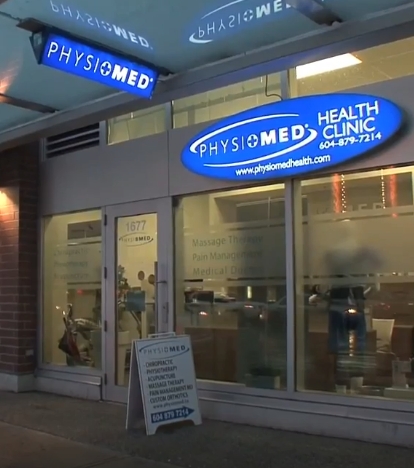Are you preparing to have surgery?
If this is the case, you should consider physiotherapy prior to surgery. Physiotherapy prior to surgery, as well as after surgery, aids in a quick recovery.
After the operation, physiotherapy can help promote a quick and complete recovery. If you are planning a surgical procedure, please contact us to learn more about how physiotherapy can help you with both preparation and recovery.
Contact Physiomed Vancouve today to find out how our physiotherapists can help you before and after surgery.
Why is surgery necessary?
Surgery may be required for a variety of reasons.
It may be necessary to remove diseased tissues, repair a broken bone, implant an electronic device, remove an obstruction, or investigate a condition for diagnosis.
Appendectomy, Cesarean section, hip replacement, coronary artery bypass, and low back surgery are all common procedures.
What can I do to prepare for my surgery?
If you intend to have surgery, you should prepare for it.
You may be familiar with post-surgical rehabilitation or rehabilitation after surgery. It makes sense: when you have a surgical procedure, your body loses a lot of strength, and rehabilitation treatments are required to help you regain function.
Post-surgical rehabilitation typically focuses on specific exercises and stretches aimed at relieving pain, improving strength, and restoring optimum function in the affected area(s) of your body.
Manual therapy, ice and heat therapies, ultrasound, electrical stimulation, and other methods or modalities may also be used as needed. Essentially, it aids in your full recovery from surgery.
Pre-surgical rehabilitation, on the other hand, can help you prepare for your surgery before it even takes place. That means taking care of your health and being in the best possible condition prior to the procedure. You should make sure you’re getting enough sleep, eating well, and staying active.
Pre-operative rehabilitation is a little different. It focuses on stretching and exercises before surgery to prepare your body for the procedure.
According to the National Institutes of Health, engaging in exercise therapies prior to surgery can significantly improve post-operative outcomes and shorten recovery time.
It is no secret that surgery is hard on the body, so preparing yourself ahead of time with strengthening stretches and exercises can greatly improve your outcomes. It can also help you mentally prepare for surgery by giving you peace of mind that you did everything possible to make the procedure as easy on you as possible.
Essentially, you should think about physiotherapy both before and after your surgery!
What role does physiotherapy play both before and after surgery?
Physiotherapy prior to surgery can be beneficial by:
- Increasing your stamina.
- Restoring your range of motion.
- Reducing surgical complications
- Reducing hospitalization and recovery time
- Limiting discomfort
Working with a physiotherapist before surgery has been shown in studies to help joints and muscles near the injury before surgery. It leads to a faster recovery and a better outcome. Pre-operative rehabilitation prepares the body for surgery.
Our physiotherapist will explain how your joints, ligaments, and muscles work together, as well as measure your current range of motion and discuss your post-surgery recovery goals. It is recommended that physiotherapy begin at least six weeks before the scheduled surgery.
People who discover they need surgery two weeks before benefit from physiotherapy as well. The goal of post-surgery physiotherapy is to assist the patient in achieving optimal physical functioning.
After surgery, a physiotherapist will review your medical history and assess your physical strength, motor functioning, breathing rate, balance, and range of motion.
Although the body can heal itself after surgery, it frequently requires assistance. Physiotherapy can help prevent muscle mass loss, range of motion loss, and scar tissue formation. Cold therapy systems are also available to physiotherapists, which aid in the healing of damaged tissues.
Keep in mind that mobility does not simply imply the ability to walk. For example, if you have shoulder surgery, you will need to regain joint mobility in order to lift objects and reach overhead.
A physiotherapist will create a treatment plan tailored to your specific injury and surgery. A physiotherapist will also advise you on what activities are safe to do while recovering. You don’t want to inadvertently injure yourself again.
How can I get started?
If you are having surgery, please contact Physiomed Vancouver to schedule an appointment with one of our physiotherapists. They will perform a thorough evaluation and explain the pre-treatment and post-surgery plans.
Our goal is to return you to your pre-injury lifestyle as soon as possible. Contact our clinic at Physiomed Vancouver to begin your recovery!



